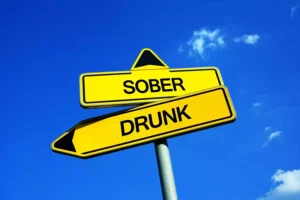The impact of alcohol misuse in trauma patients: A scoping review protocol PLOS ONE

This is because their baseline level of stress and vulnerability may already be higher than those without pre-existing mental health conditions. The numbing effect of alcohol, however, is only temporary, and the unresolved trauma remains. Continued alcohol use can worsen symptoms of trauma, leading to a vicious cycle of increased alcohol consumption to cope with the distress caused by trauma. Breaking free from this cycle requires addressing the underlying trauma through therapeutic interventions that promote healthy coping mechanisms and emotional regulation. There are several different patterns of alcohol use disorders, including alcohol abuse and alcohol dependence.

The Relationship Between PTSD and Alcohol Abuse
- Studies have also found that the severity of PTSD symptoms can significantly influence the extent of alcohol use.
- Understanding these causes and risk factors aids in prevention and treatment by addressing underlying factors.
- In many cases, those with PTSD may resort to alcohol to cope with symptoms they find unbearable.
- These therapies help individuals process traumatic experiences, challenge unhelpful thought patterns, and develop healthier coping mechanisms.
Understanding this intricate connection is crucial for developing effective treatment approaches and supporting individuals on their path to recovery. The co-occurrence of these conditions can have severe impacts on physical health, mental well-being, and overall quality of life, making it essential to address both PTSD and alcohol use disorder simultaneously. Over the past few decades, important advances have been made in behavioral treatments for comorbid AUD and PTSD. The most notable area of progress is the development of trauma-informed, manual-guided, integrated, cognitive behavioral treatments that concurrently address symptoms of both conditions.
- The combination of PTSD and alcohol use disorder can have devastating effects on an individual’s overall well-being.
- The use of alcohol as a coping mechanism inhibits the individual’s ability to develop healthy coping strategies, hindering their progress in healing from trauma.
- Alcohol-use disorders fall into the ‘avoidance’ category of PTSD symptoms, because often the person is using alcohol as a way to escape their memories.
Impact of Complex Trauma and Alcohol Use

Through these approaches, we aim to provide insights and strategies to support individuals facing the complex interplay between trauma and alcohol addiction, paving the way for holistic healing and recovery. Behavioral intervention is considered a first-line approach in the treatment of PTSD. Several empirically supported behavioral interventions have been disseminated across populations and treatment settings. As with treatments for AUD, various treatment modalities for PTSD have been studied. When individuals experience complex trauma and turn to alcohol as a coping mechanism, it can be difficult to find effective treatment.
Start Your Recovery Today
Complex PTSD primarily stems from prolonged and repetitive traumatic events, like childhood abuse, domestic violence, or exposure to war. Factors that increase the risk of developing complex PTSD include experiencing trauma at an early age, lacking social support, and having prior trauma experiences. While the journey may be challenging, there is hope for recovery and improved quality of life. By understanding how PTSD affects behavior and its link to substance abuse, individuals and their loved ones can better navigate the path to healing. With dedication, support, and appropriate treatment, it is possible to break free from the cycle of trauma and addiction, paving the way for a healthier, more fulfilling future.
This high rate of comorbidity underscores the intricate relationship between trauma and substance abuse. Shattered by trauma and drowning ptsd alcohol blackout in alcohol, countless souls find themselves ensnared in a harrowing dance between past horrors and present addiction. This complex interplay between Post-Traumatic Stress Disorder (PTSD) and Alcohol Use Disorder (AUD) represents a significant challenge in the realm of mental health and addiction treatment.
Conclusion: The Path to Recovery Begins with Understanding
- Trauma comes in many forms, ranging from single catastrophic events to prolonged exposure to distressing situations.
- AUDIT is a 10-item questionnaire developed by the World Health Organization to easily screen for excessive drinking and to assist in brief interventions for alcohol-related problems 44.
- These groups often place emphasis on peer support and provide individuals with strategies for maintaining sobriety.
- Trauma-Focused Therapy is crucial in treating individuals with co-occurring Complex PTSD and Alcohol Use Disorder (AUD).
- While it may provide short-term relief, chronic alcohol consumption can actually exacerbate PTSD symptoms in the long run.
- Activated innate immune response is also noted in other psychiatric disorders, such as major depression (MD) and bipolar affective disorder, which are often comorbid with PTSD 31.
These programs recognize that trauma and alcohol use are often interrelated, and aim to provide comprehensive care and support. Integrated treatment programs typically include a combination of individual therapy, group therapy, educational sessions, and medication management. This is followed up by tailored rehab services and evidence-based therapies like CBT to ensure integrated treatment for co-occurring disorders like PTSD. Our primary focus is to address both the psychological aspects drug addiction of PTSD and the physical dependencies of alcohol misuse. Integrated Treatment Programs offer comprehensive care for individuals with co-occurring complex PTSD and Alcohol Use Disorder (AUD).
- This instrument has demonstrated reliability and validity in a similar setting to this study 45.
- Let’s uncover the key elements that facilitate healing and growth in the face of these challenging co-occurring disorders.
- Similar to traditional PTSD, flashbacks, nightmares, and hypervigilance may occur, but individuals with Complex PTSD may also experience more severe dissociation and relationship difficulties.
The Road to Healing From Alcoholism and Trauma
All participants had an AUD which is, in itself, a modulatory factor for neuroimmune status. We are unable to confirm the accuracy of recall of past adverse events and other forms of reporting bias as several of the variables were constructed from personally sensitive self-report data. Further, calculation of standard alcohol units is approximate as the possibility of a wide variation in the ethanol concentration of locally brewed beverages cannot be ruled out. Future adequately sampled studies should account for confounders of inflammatory mediators in blood, and the comparison group should include a healthy control as well as isolated disorders. Epigenetic changes relevant to hypothalamic pituitary adrenal axis response have been found to correlate with specific childhood abuse and its repetitiveness 66. Specific trauma types, trauma complexity, number of adverse life events, trauma severity, and duration as well as recency of PTSD symptoms are important considerations for future studies of trauma psychoneuroimmunology.

Recovery from co-occurring PTSD and alcohol use disorder is a journey that requires ongoing effort and support. This may involve learning and practicing stress reduction techniques, such as mindfulness meditation, deep breathing exercises, or yoga. Engaging in regular physical exercise and maintaining a balanced diet can also contribute to overall well-being and resilience. Treating PTSD without addressing alcohol use, or vice versa, often leads to poor outcomes and increased risk of relapse. Integrated treatment allows for a more holistic approach, addressing the underlying trauma https://ecosoberhouse.com/ while also providing tools and support for managing alcohol use.
Cue reactivity paradigms offer a clinically relevant scientific avenue to advance our understanding of PTSD/AUD comorbidity and ultimately inform evidence-based interventions. Cue reactivity paradigms evoke emotional, behavioral, and/or physiological responses by manipulating external (e.g. images, smells, scripts) cues. Individuals with complex trauma may suffer from symptoms of post-traumatic stress disorder (PTSD), depression, anxiety, and other mental health disorders. The use of alcohol can worsen these symptoms and interfere with the individual’s ability to heal and recover.
Share:
Categories
- ! Без рубрики 18
- 1 5
- 2 3
- 8470_ru 8
- 8500_tr 6
- 8600_ru 8
- 8800_ru 8
- 8930_ru 8
- 9080_ru 8
- 9150-2_ru 8
- 9270_ru 3
- 9300_ru 10
- 9330_ru 10
- 9400_ru 10
- AI in Cybersecurity 1
- Blog 9
- Bookkeeping 7
- Business 6
- casino review 2
- Cryptocurrency exchange 2
- Design - Branding 3
- Education 1
- FinTech 2
- Forex Trading 4
- IT Vacancies 1
- IT Образование 2
- New Post 1
- Ozwin Casino No Deposit Bonus Codes June 2021 Pokies And Slots - 236 4
- Podcast 7
- review 1
- Sober living 2
- Software development 2
- test content 2
- Uncategorized 345
- Video 3
- Форекс Брокеры 1
- Форекс Обучение 5
Popular Blog
The Best Contractor Accounting Software
Gallery
Quick Menu
Contact
- +00 123 456 789
- hello@coaching.com
- PO Box 99257 Baker st. 567 Los Angerles California, US






